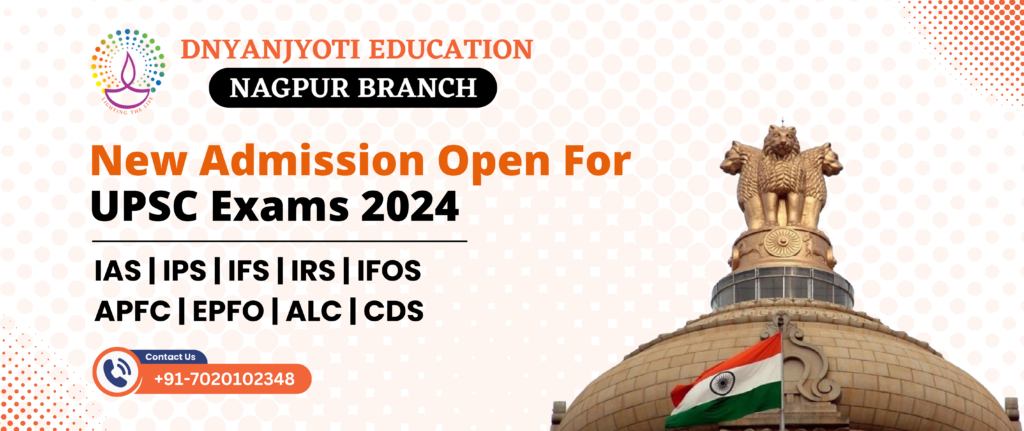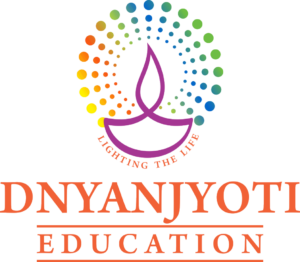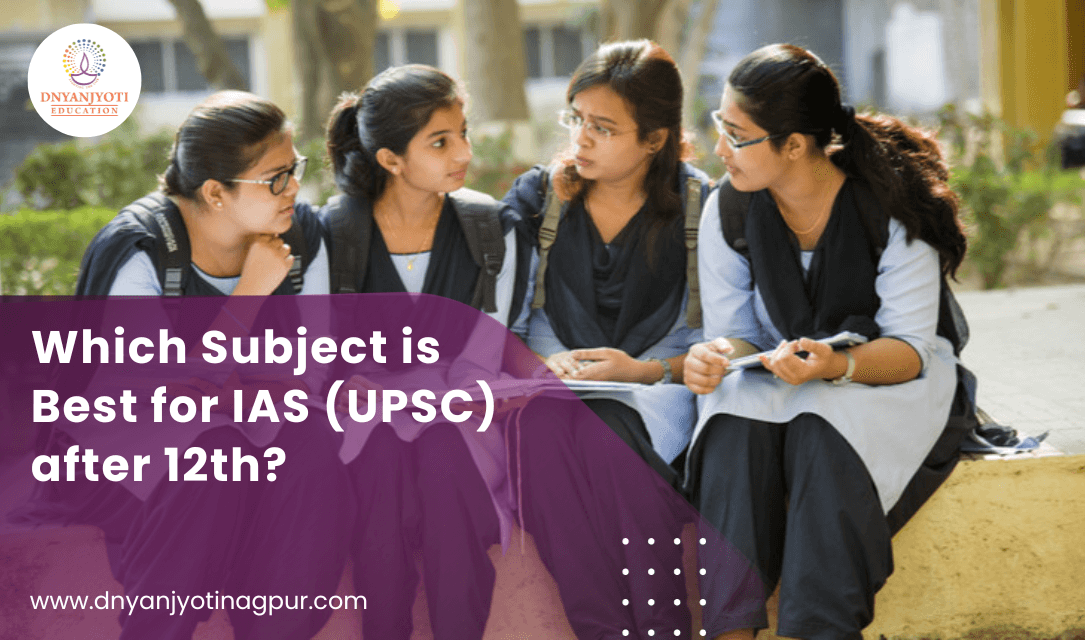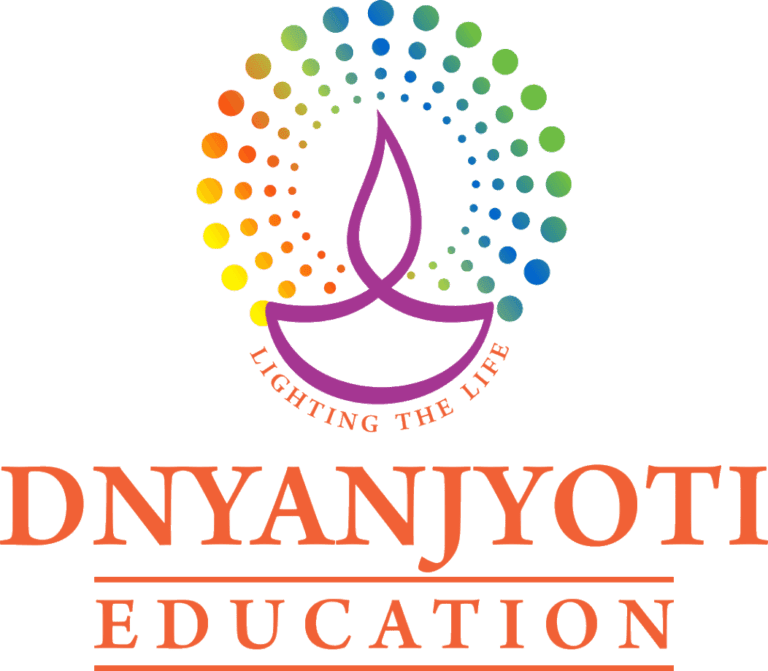In accordance with the regulations found on the official site of UPSC the graduation of any recognized university is the only requirement for education for appearing in the exam. However, does this mean that you need to start preparing right after completing the graduation process and not until after the 12th grade? UPSC examinations are a long process due to its huge curriculum and the duration of the exam process.
Therefore, if you take part in UPSC examination preparation as soon as you pass having completed your 12th it will allow you to cut down on time. Additionally, you’ll get a high chance of passing with just one attempt to pass the examination.
Although the minimum age for appearing in the exam is 21 years old, it is not necessary to wait for that long to begin your preparation. you are already preparing your basic subjects (NCERTs) as well as optional subjects. It is now time to think about which subject is best for IAS after 12th? Let’s get to the answer in the following.
Which Subject is Best for IAS After 12th?
The best subject for IAS after the 12th should be a combination of humanities or arts subjects. But the answer to which subject is best for IAS depends on the student’s interest and situation. Here we have a detailed analysis of subjects that can be chosen by the candidate for their UPSC examination.
Humanities
Humanities has been thought to be the top of all UPSC exams for a lengthy period of time, since it has been thought to cover a significant portion of the syllabus. However, the present scenario could not be able to find Humanities as the sole option for a guaranteed exam. The Bachelor’s degrees offered in History or Economics, Politics Sociology are regarded as to be the most suitable subjects for UPSC due to their importance to the majority subjects on the curriculum. They are also included in the compulsory subjects of the Mains. As such, if you are studying these subjects in your final degree, you could be able to tackle many of the topics in the optional examinations.
Many aspirants choose to abandon Humanities as an option because they find it to be a bit overwhelming and difficult in comparison to the standard sciences subjects. The majority of the topics in social studies must be written according to current events, which means that most subjects need to be in line with current events. Humanities are challenging in the sense that it’s vast and diverse and therefore you need to be current with the ever-changing political, economic and geography of the nation or world.
Science Engineering and Medical
The latest data show that the Engineering and Medical background students are winning this year’s UPSC exam. But, due to the technical aspects involved certain students might not be able to pick these subjects as their UPSC subjects. The Science subjects might not be appropriate for some applicants since they tend to be restricted to optional exams and will not help significantly in other areas of the UPSC examination. Other sections of the exam are general studies papers or those that are called prelims. These are usually packed with questions that are based on the Humanities area. However, this shouldn’t deter students who are not from a science background since they can begin preparing for the test in the very beginning of their graduation.
Students in the field of science may begin making for their static social study and optional subjects prior to their graduation. Due to the technical nature of their subjects it is possible that you are not confident in your essay writing abilities and, therefore, you must continue to practice writing with models and toppers answers sheets on the internet.
Strategies for students studying science background
In the course of graduation, all candidates for the science background must :
- Make NCERTs
- Make a habit of daily newspaper reading
- Practice essay writing
- Cover the static portion
- Examine previous year’s papers to determine the possibility of an
6 Tips for Choosing the Best Subject for IAS Preparation in 2024
The Indian Administrative Service (IAS) is one of the most prestigious and sought-after career options in India. It is a highly competitive exam that requires a lot of hard work and dedication to crack.
One of the key decisions that an aspiring IAS officer has to make is choosing the right and best optional subject for the (IAS) Civil Services Main exam. With a variety of subjects to choose from, this decision can be quite daunting for many candidates.
Now we will discuss some important factors that you should consider while selecting the best subject for IAS.
1) Understanding the Weightage of The Subject
The first step towards choosing the right optional subject is understanding the weightage it holds in the Civil Services Main exam. Out of the 2025 marks, the optional subject carries 500 marks which make it a significant factor in determining your rank. Therefore, it is important to choose a subject that you are confident about and can score well in.
2) Interest and Aptitude
While many people may suggest opting for subjects with high success rates or those considered easy, it is crucial to remember that each individual has their own strengths and interests. Choosing a subject that aligns with your aptitude and interest will make it easier for you to understand and retain the concepts, leading to better performance in the exam.
3) Availability of Study Material
Another important factor to consider is the availability of good study material for your chosen subject. It is advisable to opt for subjects that have well-defined syllabus and a good number of books and online resources available. This will not only make your preparation easier but also save you time in the long run.
4) Scoring Potential
While it is important to choose a subject that you are interested in, it is equally essential to consider its scoring potential. Some subjects may seem easy but have low success rates due to high competition or subjective evaluation. It is advisable to research and analyze the past trends of a subject before finalizing it.
5) Overlap with General Studies
Many subjects have overlapping topics with the general studies syllabus, which can prove to be an advantage in preparing for both parts simultaneously. This could save you time and effort, especially when there is limited time left for the exam.
6) Consultation with Experts
It is always a good idea to seek guidance from experienced candidates or UPSC coaching institutes before finalizing your optional subject. They can provide valuable insights and help you make an informed decision based on their personal experiences and expertise. Additionally, it is important to make sure that the chosen subject has a good scoring potential. This can be determined by analyzing past trends and the results of past exams.

Conclusion
Selecting the best subject for IAS requires a combination of practicality and personal preference. It is important to consider all the factors mentioned above and make an informed decision based on your strengths, interests, and available resources. Remember to stay true to yourself and embrace the journey ahead with passion and determination.
While the factors mentioned above are crucial in selecting the right optional subject, it is also important to remember that this decision is not just about scoring well in an exam. It is about choosing a subject that you will dedicate a significant part of your life to.
Therefore, it is essential to reflect on your personal journey and understand what drives you. Your passion for a subject can be a major driving force in your preparation and ultimately, your career as an IAS officer.
You may also consider the scope of your chosen subject beyond the exam. Some subjects may have limited career opportunities while others may open doors to various fields such as research, policy-making or even teaching.
In the end, remember that your optional subject is not just a means to an end but a journey in itself. So, choose wisely and embark on this journey with enthusiasm and dedication.
Best of luck! _”The future belongs to those who believe in the beauty of their dreams.” – Eleanor Roosevelt
So dream big, choose wisely and turn your dreams into reality by becoming an IAS officer. All the best!
Also Read Our Blogs:
- How to Choose the Best Stream After 10th-Complete Guide
- What is UPSC Full form? Syllabus, Exam Pattern, UPSC Examinations, eligibility criteria and Latest News 2023-24
- The Best Strategy For UPSC Exam Preparation Complete Guide
- UPSC Agriculture Optional Syllabus 2023 – Download PDF
- UPSC Final Result 2023: Check UPSC and Merit List PDF
- The UPSC Law Syllabus for IAS Exam 2023 | Download PDF
FAQ’S
Which degree is best for IAS?
There is no specific degree requirement for IAS. Candidates from various academic backgrounds have successfully cleared the exam. What matters most is a deep understanding of the subjects covered in the UPSC syllabus and the ability to apply knowledge effectively.
Which subject is main for IAS?
The UPSC syllabus covers a wide range of subjects, including history, geography, economics, political science, and more. While each subject has its own significance, it is advisable to choose a subject you are passionate about. This will make your preparation journey more enjoyable and increase your chances of success.
Which subject is best for IAS in Class 11 and 12?
Class 11 and 12 are crucial stages for building a strong foundation. Subjects like history, geography, political science, and economics can provide a solid base for IAS preparation. However, it is equally important to focus on developing strong analytical and writing skills, as these are essential for the IAS exam.
Is 12th marks important for IAS?
While 12th marks are not directly considered for the IAS exam, they may be taken into account during the interview stage. However, the primary focus should be on thorough preparation for the UPSC exams and acquiring the necessary knowledge and skills.
Is Arts good for IAS? Is science good for IAS?
Both Arts and Science streams can be equally beneficial for IAS preparation. The choice between the two depends on your personal interests and strengths. Arts subjects like history and political science provide a strong foundation for understanding society and governance, while science subjects like geography and economics offer valuable insights into the world around us. Choose the stream that aligns with your interests and strengths.
What is the full syllabus of UPSC?
The UPSC syllabus covers a vast range of subjects, including history, geography, economics, political science, science and technology, environment, and more. You can find the detailed syllabus on the official UPSC website or by visiting UPSC Syllabus.


